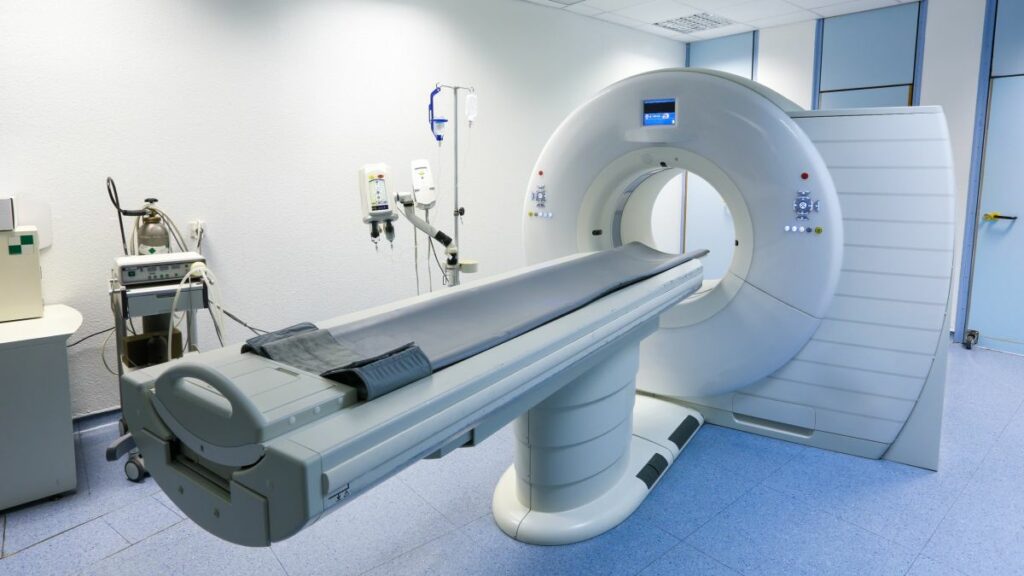When it comes to cardiovascular health, prevention is key. Modern medicine’s foundation lies in identifying possible dangers before they become severe cardiac diseases. One of the tools in this preventive arsenal is the Calcium Heart Score, a non-invasive imaging technique that assesses the presence and extent of coronary artery calcification. But who exactly should consider undergoing this test? Let’s delve into the intricacies of Calcium Heart Score testing and explore the demographic that stands to benefit the most.
Calcium Heart Score
It’s important to understand what the Calcium Heart Score evaluation comprises before we talk about who should think about getting tested. The Calcium Heart Score, also called coronary calcium score, measures the amount of calcium buildup in the coronary arteries by using computed tomography (CT) scanning. Calcium deposits are frequently a sign of atherosclerosis, a disorder where plaque accumulation causes the arteries to stiffen and narrow. Healthcare practitioners can determine a person’s risk of coronary artery disease (CAD) and associated cardiovascular events, such as heart attacks, by assessing the degree of calcification.
High-Risk Individuals
Given its ability to predict future heart disease risk, Calcium Heart Score testing is particularly beneficial for individuals deemed high-risk based on various factors. These may include:
· Age: As individuals age, their risk of developing heart disease tends to increase. Therefore, older adults, especially those over the age of 40 or 45, may benefit from Calcium Heart Score testing to assess their cardiovascular health status.
· Family History: A family history of heart disease, particularly if a close relative experienced a heart attack or stroke at a relatively young age, elevates one’s risk significantly. Those with a familial predisposition to heart disease should consider Calcium Heart Score testing for early detection and intervention.
· Smoking: Tobacco is a primary and major risk factor for heart issues, as it contributes to the development of atherosclerosis and other cardiovascular conditions. Smokers or individuals with a history of smoking should undergo Calcium Heart Score testing to evaluate their heart health status and potentially motivate smoking cessation efforts.
· High Blood Pressure (Hypertension): Hypertension puts strain on the heart and blood vessels, raising the risk of coronary artery illness and other cardiovascular complications. Individuals with high blood pressure, especially those with poorly controlled hypertension, should consider Calcium Heart Score testing to assess their overall cardiovascular risk.
· High Cholesterol Levels: Elevated levels of cholesterol, particularly low-density lipoprotein (LDL) cholesterol, contribute to the formation of arterial plaque and the progression of atherosclerosis. Individuals with high cholesterol levels, particularly those resistant to lifestyle modifications or lipid-lowering medications, may benefit from Calcium Heart Score testing to evaluate their risk of developing coronary artery disease.
· Diabetes: Diabetes raises the chance of cardiovascular events and hastens the development of atherosclerosis, making it a major risk factor for heart disease. Individuals with diabetes, especially those with additional risk factors such as obesity or uncontrolled blood sugar levels, should undergo Calcium Heart Score testing to assess their cardiovascular risk and guide preventive strategies.
Middle-Risk Individuals
In addition to high-risk individuals, those categorized as intermediate or middle-risk based on traditional cardiovascular risk assessment tools may also benefit from Calcium Heart Score testing. These individuals typically have a combination of moderate risk factors, such as borderline hypertension, mildly elevated cholesterol levels, or a family history of heart disease without additional high-risk features. Calcium Heart Score testing can help stratify their risk more accurately and guide preventive interventions, such as lifestyle modifications or pharmacological therapies, to mitigate their risk of developing coronary artery disease.
Low-Risk Individuals
While Calcium Heart Score testing is not routinely recommended for low-risk individuals with no significant risk factors for heart disease, there may be exceptions. In some cases, individuals with seemingly favorable cardiovascular profiles may choose to undergo Calcium Heart Score testing for reassurance or to gain a more comprehensive understanding of their heart health status. Additionally, healthcare providers may consider Calcium Heart Score testing for select low-risk individuals with specific concerns or persistent symptoms suggestive of underlying heart disease, albeit in the absence of traditional risk factors.
It’s never too late to improve heart health!(Opens in a new browser tab)
Conclusion
Calcium Heart Score testing helps prevent and identify coronary artery disease, especially in high-risk individuals due to age, family history, lifestyle factors, or pre-existing medical disorders. Calcium Heart Score testing helps healthcare practitioners and patients reduce heart disease risk and improve long-term cardiovascular outcomes by recognizing coronary artery calcification and quantifying cardiovascular risk. Thus, people with heart health risk factors should discuss Calcium Heart Score testing with their doctor to see if it’s right for them. Proactive treatment and early intervention can prevent heart disease’s severe effects.
